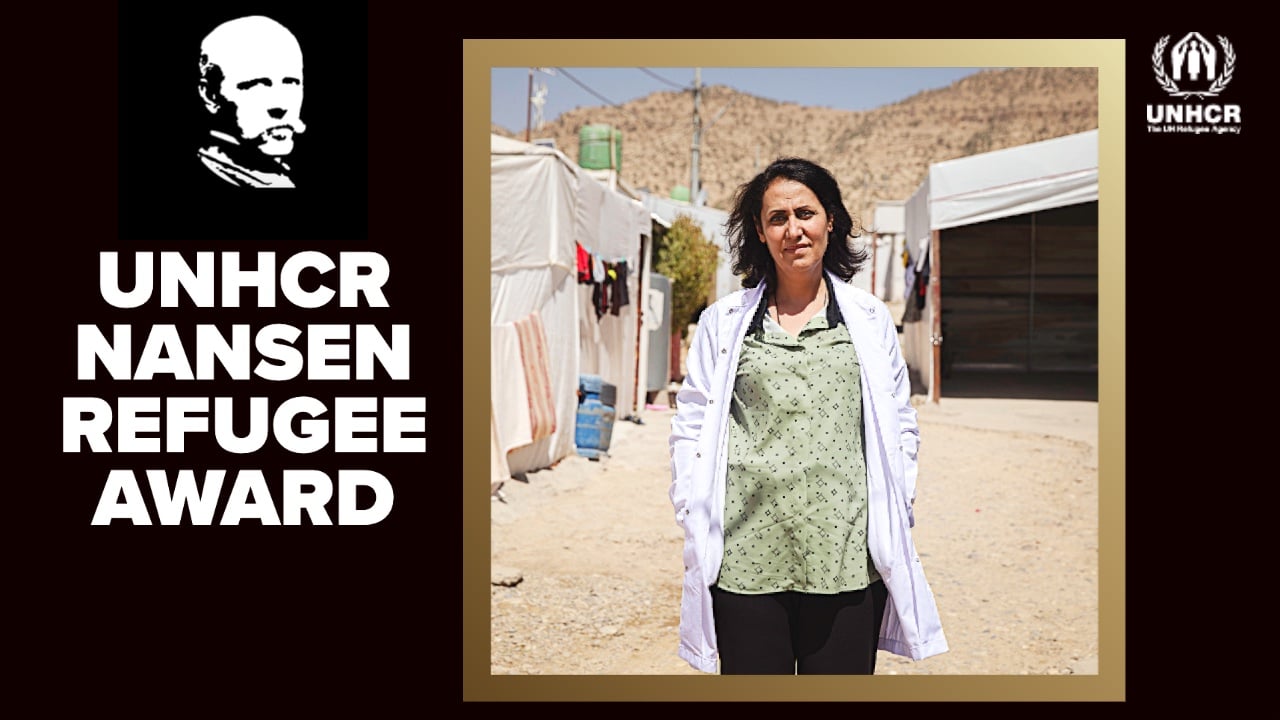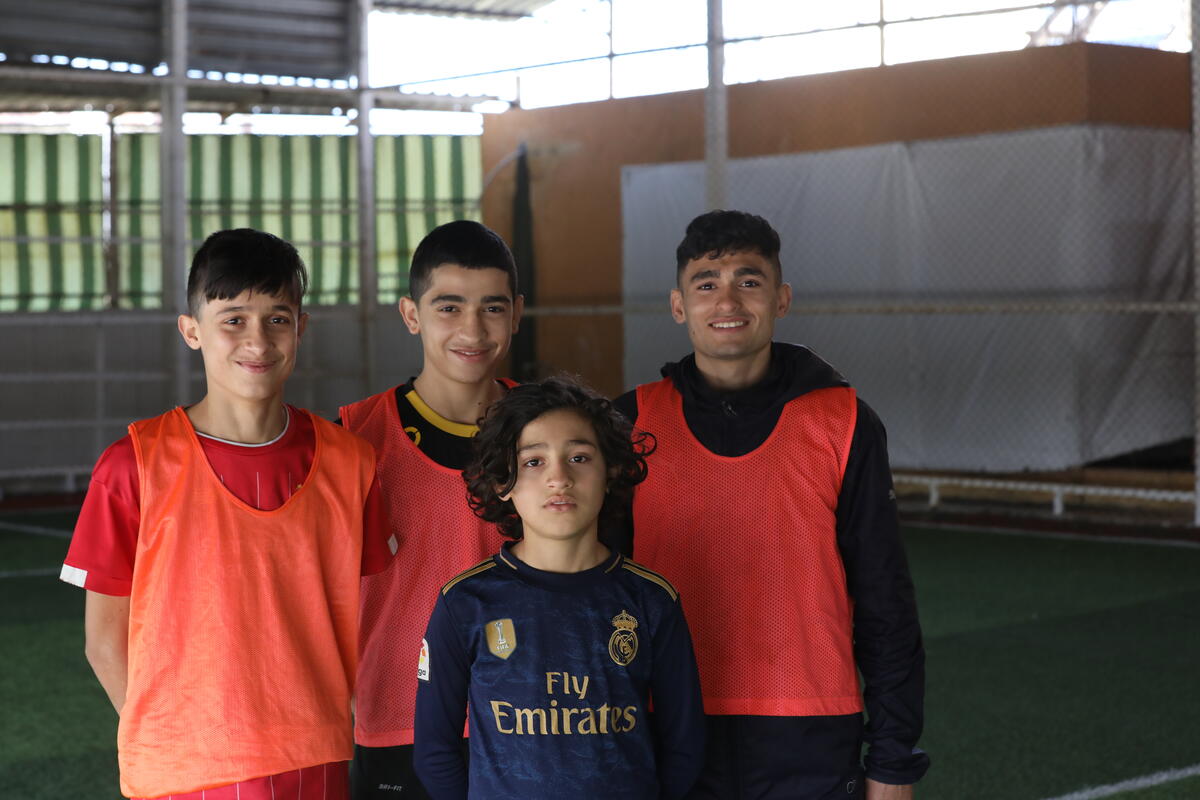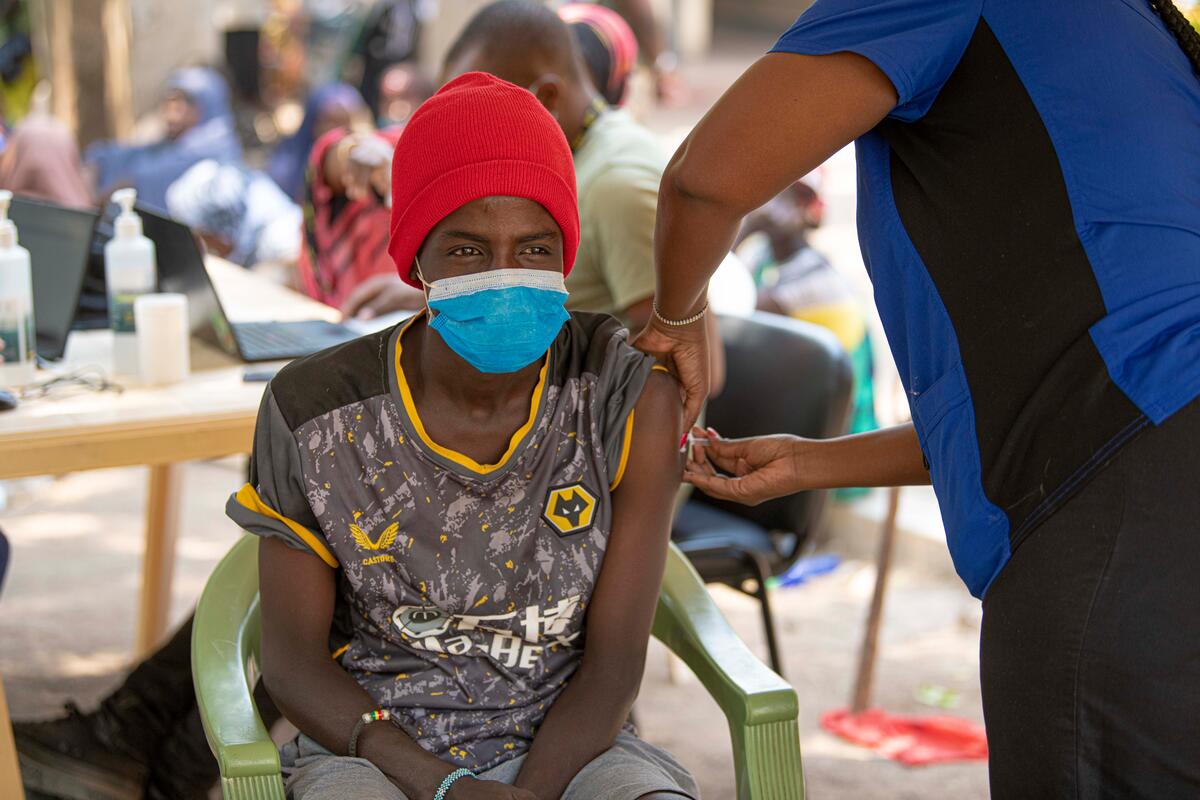Congolese refugees flee to Sudan to escape Lord's Resistance Army
Congolese refugees flee to Sudan to escape Lord's Resistance Army

LASU, Sudan, January 27 (UNHCR) - Recent attacks by the rebel Lord's Resistance Army in north-eastern Democratic Republic of the Congo (DRC) have driven thousands of Congolese to South Sudan.
A UNHCR team last weekend visited the Sudanese village of Lasu, 50 kilometres from the DRC border, and registered 680 uprooted Congolese, most of them from the village of Aba. They said they fled their homes last week following an attack by the Lord's Resistance Army (LRA), a rebel group from Uganda.
The total number of refugees in Lasu is estimated at up to 2,000 and UNHCR is continuing verification. The team found out that many parents had gone back to the DRC to search for food for their children, man of whom had gone several days without eating.
"Most of the refugee population in Lasu is living in the open, under trees. They are relying largely on the generosity of the local population, but far outnumber the local residents, who have only limited food stocks," said a UNHCR spokesman, adding that the World Food Programme (WFP) was dispatching a one-month food ration today from the South Sudan capital, Juba, while UNHCR is reviewing emergency assistance to the refugees.
Lonyiyo, a 26-year-old mother of three, told the UNHCR team in Lasu that she had fled her home after hearing that LRA fighters had gone on an orgy of killing, raping, looting and kidnapping during an attack on a village some eight kilometres away. She did not know the whereabouts of her husband, who was on his way to a market when the news of the attack came through.
The pregnant woman was worried about where to stay and how to feed her children. She was also concerned about medical facilities for when she gave birth. At least two of the displaced Congolese have given birth since arriving in Lasu, local officials said.
Meanwhile, another UNHCR team has visited Ezo, closer to the border with the Central African Republic and the DRC, to assess the situation of some 2,000 Congolese refugees who fled there some weeks ago following LRA attacks in the north-west of Dungu district in DRC's Orientale province.
They found that all the refugees were living in huts in Napere, a spontaneous camp located 2 kms north of Ezo. The lack of food is also a serious problem in the Ezo area, which previously received many of its supplies from the DRC.
The local community is unable to support the refugees, who are compelled to seek food in the bush. WFP planned to send food from Juba on Tuesday. Children are showing signs of malnourishment. Lack of clean water, drugs and medical care are also affecting the refugees.
In Ezo, a young Congolese woman named Mary recalled the ordeal she and her four children had been through before reaching Sudan. Her husband was killed when the LRA attacked her village, but she managed to hide.
She joined an exodus of other survivors and headed towards Ezo with one child on her back and an infant, Josephine, in her arms while the two older children walked. They reached Ezo on January 4 and were directed to Napere camp.
Mary was allocated a plot and shelter in the camp, but her ordeal was not over. She struggled to feed the family and soon after the UNHCR team arrived, her daughter Josephine died from the effects of diaorrhea and fever. Help came too late for her.
"Humanitarian assistance remains hampered by the volatile security situation in this area as well as by the limited accessibility. The airstrip in Ezo is not operational and roads are only usable during the dry season," the UNHCR spokesman said. Although South Sudan is in the dry season at the moment, there have been heavy rains in Western and Central Equatoria states in recent days. There are also many thousands of displaced Sudanese in Western Equatoria as a result of LRA attacks within South Sudan.
In a separate development, UNHCR is continuing the transfer of refugees from the Gangura and Yambio areas in South Sudan, near the DRC border, to Makpandu, 44 kms north-east of Yambio. To date, the refugee agency has moved 822 people. These refugees are part of a larger group of more than 6,000 people who escaped LRA attacks on their villages near Dungu last September.
By Monique Rudacogora in Lasu
and Michael Owor in Ezo, Sudan









